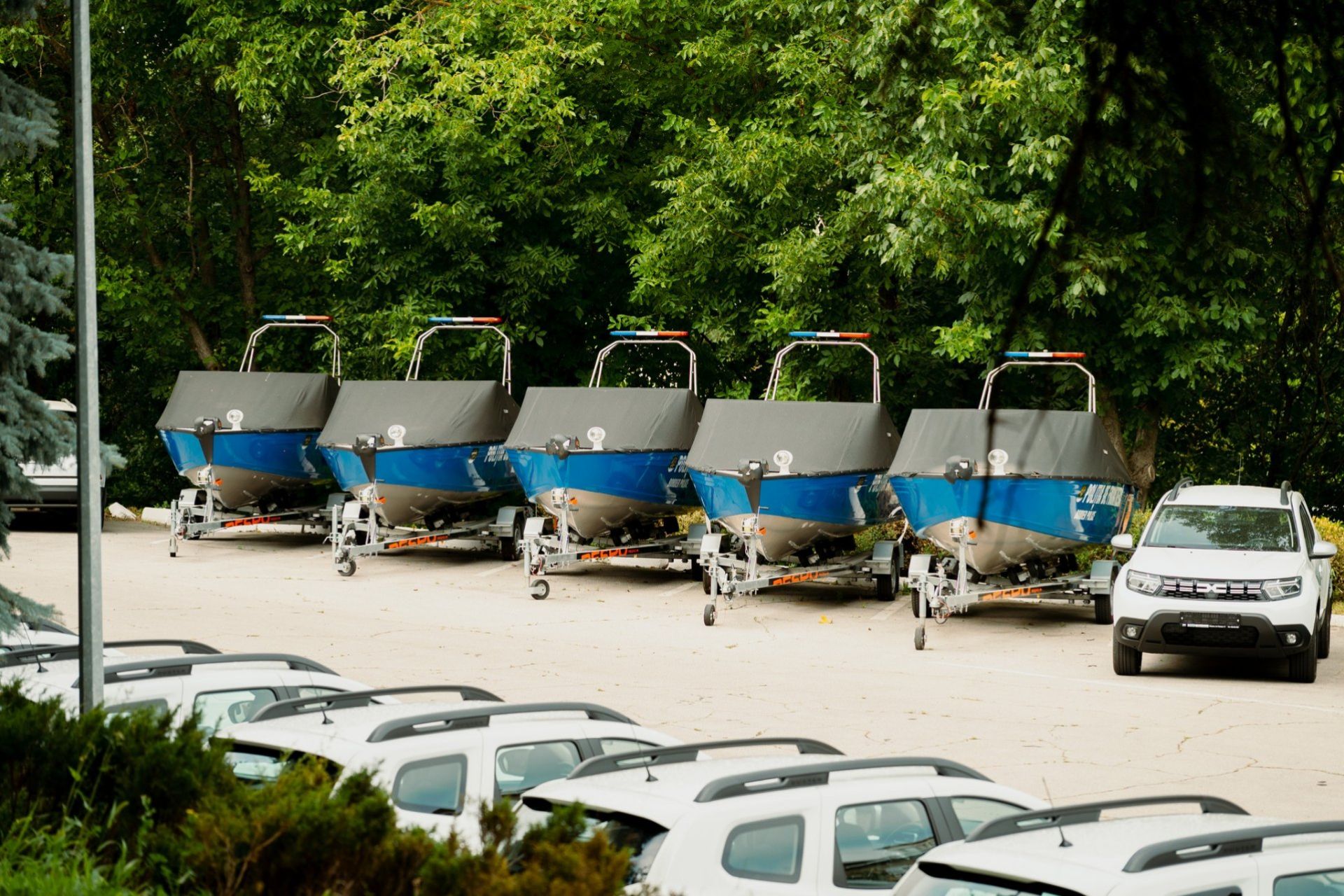Breaking News
Germany supplies Moldova with Ukrainian-made FurSeal boats for border security.
According to information published by the Moldovan government on July 4, 2024, Germany has strengthened Moldova's border police capabilities with the delivery of FurSeal 485 boats produced in Ukraine.
Follow Army Recognition on Google News at this link

FurSeal 485 boats during the official delivery ceremony. (Picture source: Moldovan Gov)
These vessels are part of a larger equipment donation under a charitable initiative, which also included 38 off-road vehicles intended to enhance border patrol operations. The official handover ceremony featured Moldovan Interior Minister Adrian Efros, German Ambassador Margret Maria Weber, and Border Police Chief Ruslan Galushka.
The donated fleet, comprising 38 Dacia Duster vehicles and five FurSeal boats, will be distributed among various border police units. The FurSeal 485, designed and built by the Ukrainian company FurSeal, specializes in aluminum vessels.
This model, sold in Moldova by the distributor Boats Expert at approximately 16,000 euros each, includes features such as an aerator, dual consoles, and a capacity for four passengers. For the Moldovan police, these boats have been further equipped to meet their specific needs.
The FurSeal 485 boasts a welded hull made from an aluminum-magnesium alloy, ensuring durability and resilience, which are essential for maintaining secure and efficient border operations.
Moldovan Armed Forces
Historically, Moldova has underinvested in its military, relying heavily on outdated Soviet-era equipment. The collapse of the Soviet Union left Moldova with a strategic vacuum, and the country declared neutrality after gaining independence in 1991. This decision led to a significant decline in military investment and capability, with the armed forces shrinking to a fraction of their Soviet-era strength.
One of the most pressing issues for Moldova has been the situation in Transnistria, a breakaway region supported by Russian forces. The conflict in the early 1990s highlighted Moldova's unpreparedness for military engagement, as the country faced well-equipped paramilitary units backed by the 14th Soviet Army. Moldova's response was poorly organized, leading to significant losses and the eventual establishment of a de facto independent Transnistria under Russian influence.
In recent years, the Russian invasion of Ukraine has acted as a catalyst for Moldova to reevaluate and strengthen its military capabilities. Moldova shares concerns similar to Ukraine regarding Russian military presence and aggression.
Consequently, Moldova has accelerated efforts to modernize its military and align with Western standards. This includes increasing its defense budget from one of the lowest in Europe to a slightly higher percentage of GDP.
Moldova's naval capabilities are limited and face several challenges. The country lacks a significant naval force, partly due to its geographical constraints and the prioritization of land and air forces. The emphasis has been on addressing hybrid threats such as disinformation, cyberattacks, and energy security, which are critical given Moldova's limited resources and strategic position.


























